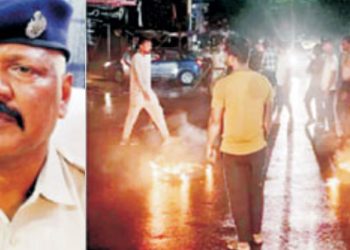ISLAMABAD: Supreme Court of Pakistan has ordered the Election Commission Pakistan (ECP) to hold elections in Punjab and KP in 90 days. The verdict was announced with majority of 3-2, with Justice Mansoor Ali Shah and Justice Jamal Mandokhail adding their notes of dissent, raising objections on the maintainability of the petition.
The split verdict with 3-2 majority was announced by Chief Justice of Pakistan Justice Umar Ata Bandial on Wednesday. (The full text of SC order is attached below)
Also read: What did Justice Jamal Mandokhail & Justice Mansoor Ali Shah write in dissenting notes?
Delivering the verdict, the SC stated that the Constitution has given a 90 days period for conducting the elections after the dissolution of assemblies and that the procedure of the general elections is different.
“Elections within 90 days after dissolution of assembly are mandatory,” CJP Bandial stated.
The Supreme Court declared that the Presidential order of announcing date for elections in Punjab is constitutionally competent and subject to what is observed below, it is hereby affirmed insofar as it applies to the Punjab Assembly; but the same is constitutionally invalid insofar as it applies to the KPK Assembly and is therefore hereby set aside.
The SC further declared that “it also follows that the Governor of KPK Province, inasmuch as he has not appointed a date for the holding of the general election to the Assembly of that Province is in breach of his constitutional responsibility.”
In its verdict, the apex court ordered the election commission to consult over the date of polls with the president under sections 57 and 58 of the Election Act for holding elections in Punjab. All government institutions have been ordered to ensure cooperation with the election commission for holding polls in both provinces.
The court deemed the president’s order to hold polls in KP invalid as the dissolution order was signed by the Governor, however, the order remains applicable to Punjab since the dissolution came into effect after a lapse of 48 hours despite the fact that Governor Baligur Rahman stayed away from signing it.
A large number of lawyers, political leaders and Attorney General were present on this occasion.
The Supreme Court had reserved the verdict in the suo motu Tuesday morning.
Headed by Chief Justice Umar Ata Bandial, a five-member bench comprising Justice Munib Akhtar, Justice Muhammad Ali Mazhar, Justice Mansoor Ali Shah, and Justice Jamal Khan Mandokhail conducted the hearings for two successive days — from Monday to Tuesday.
Earlier during yesterday’s hearing, the apex court had asked the political parties — the Pakistan Tehreek-e-Insaf (PTI) and the ruling alliance — to agree upon a mutual date for the elections, but they could not reach a consensus. The Pakistan Muslim League-Nawaz’s (PML-N) lawyer asked the court to continue the proceedings as the coalition partners needed more time to consult with each other.
Background:
The Supreme Court on February 22 had taken the suo motu notice of delay in the elections of the two assemblies, following President Arif Alvi’s announcement of the date of polls, a move that drew strong criticism from the government
As per the CJP, the suo motu notice had been taken to assess who was eligible to issue the date for polls and who had the constitutional responsibility of conducting elections and when.
A nine-member larger bench was constituted initially to hear the case but the bench was reconstituted after four judges of the bench recused themselves.
The judges that recused themselves were Justice Ijaz Ul Ahsan, Justice Sayyed Mazahar Ali Akbar Naqvi, Justice Athar Minallah and Justice Yahya Afridi.
Meanwhile, the ruling alliance — PML-N, Pakistan Peoples Party, and the Jamiat Ulema-e-Islam (JUI-F) — also withdrew their plea for the formation seeking a full court bench after the reconstitution of the bench hearing the case.





































